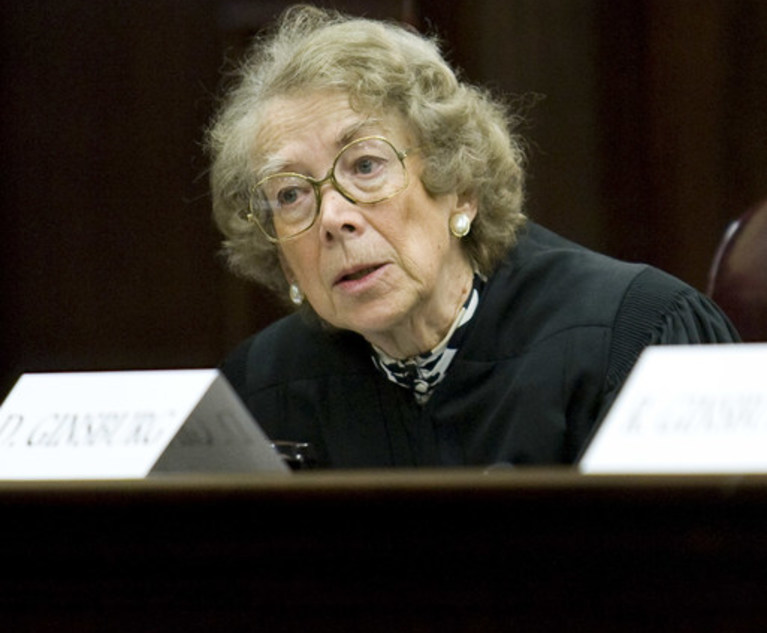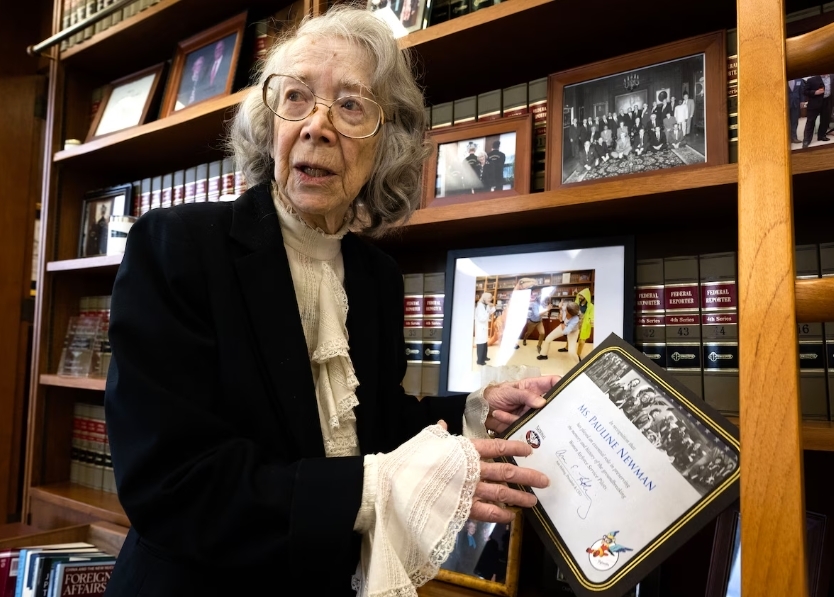The Fight for the Gavel: Judge Pauline Newman’s Battle Against Suspension
Have you ever felt like someone was unfairly judging you? Imagine that feeling, but magnified a thousand times, with your entire career, your legacy, and your very reputation on the line. That’s the situation facing Federal Judge Pauline Newman, a remarkable figure in the world of patent law, who is currently fighting a battle not just for her career, but for the very principle of due process. This isn’t just a legal squabble; it’s a story about resilience, ageism, and the complexities of the judicial system.

This article delves deep into the ongoing controversy surrounding Judge Newman’s suspension and her subsequent challenge to a mandatory mental competency evaluation. We’ll explore the arguments from both sides, examine the ethical and legal implications, and consider the broader implications for the judiciary and the treatment of senior judges. So, grab a cup of coffee, settle in, and let’s unravel this fascinating and important legal drama.
The Judge Who Defined Patent Law: Pauline Newman’s Legacy
Before we dive into the current controversy, it’s crucial to understand the incredible legacy of Judge Pauline Newman. For decades, she has been a towering figure in the field of patent law, renowned for her sharp intellect, her deep understanding of complex technical issues, and her unwavering commitment to justice. She’s not just a judge; she’s a pioneer.
- A trailblazer for women in law: Judge Newman’s career has been a testament to perseverance and breaking barriers. In a field historically dominated by men, she carved her own path, becoming a highly respected and influential jurist.
- A master of patent law: Her decisions have shaped the landscape of patent law for decades, influencing countless cases and setting precedents that continue to be cited today. Her opinions are known for their clarity, precision, and insightful analysis of complex technological issues.
- A prolific writer and speaker: Judge Newman has authored numerous articles and delivered countless lectures on patent law, sharing her expertise and contributing to the ongoing development of the field.

Her contributions to patent law are undeniable. Many argue that her suspension, based on concerns about her mental fitness, is not only unjust but also a significant loss for the legal community. Her sharp mind and decades of experience are invaluable assets, and the potential loss of her expertise is a concern for many legal professionals.
The Spark that Ignited the Controversy: Concerns Regarding Cognitive Function

The controversy surrounding Judge Newman began with concerns raised about her cognitive abilities. While the specific details are confidential and subject to ongoing legal proceedings, the essence of the concern revolves around the perception that her age and potential cognitive decline are impacting her judicial performance. These concerns, however, have been met with strong opposition from Judge Newman and her supporters.
This situation highlights a sensitive and often overlooked issue within the judicial system: the treatment of aging judges. While age can bring invaluable experience and wisdom, it can also raise concerns about cognitive function. Finding a balance between respecting the experience of senior judges and ensuring the integrity of the judicial process is a delicate task.
The Demand for a Mental Evaluation: A Violation of Due Process?
The most contentious aspect of this case is the demand for Judge Newman to undergo a mandatory mental competency evaluation. Judge Newman and her legal team argue that this demand is a violation of her due process rights. They contend that there’s no objective evidence to support the claims of cognitive impairment and that the evaluation itself is an overreach of authority.

This argument raises critical questions about the standards for evaluating judicial fitness and the potential for bias in such evaluations. Are there clear, objective criteria for determining when a judge’s cognitive abilities are impaired to the point of requiring removal from the bench? Or are such evaluations susceptible to subjective interpretations and potential biases, particularly against older judges?
The Arguments Against the Evaluation: Presumption of Competence and the Importance of Due Process
Judge Newman’s defense rests on several key pillars:
- Presumption of competence: The legal principle of "presumption of competence" suggests that individuals are presumed competent until proven otherwise. Judge Newman’s legal team argues that the burden of proof lies with those alleging incompetence, and that this burden has not been met.
- Lack of objective evidence: They contend that the concerns raised are largely anecdotal and lack the objective evidence necessary to justify a mandatory mental evaluation. They argue that there’s no clear pattern of flawed decisions or demonstrable cognitive decline.
- Violation of due process: The forced evaluation, they argue, is a violation of Judge Newman’s due process rights, depriving her of a fair opportunity to defend herself against allegations of incompetence. They emphasize the importance of procedural fairness and the right to a robust defense.

The case highlights the crucial role of due process in ensuring fairness and protecting the rights of individuals, even those in positions of power. The judiciary itself must uphold the principles of due process, and any deviation from these principles undermines the integrity of the system.